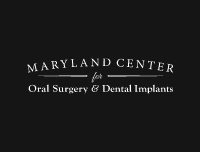“The link between oral health and systemic health is clear. To imply that oral care is routine and unnecessary ignores decades of scientific research and is a disservice to patients. “
– Dr. Jack Dillenberg, Dean Emeritus
Arizona School of Dentistry and Oral Health
Recently, the news media has highlighted new guidelines from the WHO regarding dental treatment during the pandemic. Reuters, the New York Times, and other media outlets ran the headline, “Delay Routine Dental Checkups, WHO Urges, Until Covid Risk Is Known” for their coverage of the guidelines.
Shortly thereafter, The WHO Chief Dental Officer expressed his concerns about the coverage causing fear for patients, and issued the following statement:
“Unfortunately, a number of media headlines referring to WHO guidance, did not mention that the recommendation to delay routine oral health care is only suggested in an intense uncontrolled community transmission scenario. A scenario that does not fit with the current situation of most countries around the world.”
This clarification is particularly important in light of recent studies indicating that dental hygiene is a key piece of maintaining health and decreasing risk during the pandemic. These studies demonstrated that there is a direct connection between oral inflammation and higher risk of serious respiratory issues and Covid-19 complications. The studies conclude that oral hygiene, control of inflammation, and periodontal therapy improve overall health and protect against Covid-19 complications.
It is also important to understand during this pandemic that postponing treatment of any diagnosed dental issue can cause additional problems down the road. Dental disease, whether decay or periodontal disease, does not cure itself. It only progresses with time and could eventually lead to an emergency situation, which involves infection or pain. Problems such as fractures or broken teeth usually become worse over time as well. Left untreated, dental issues usually require more extensive treatment in the future, which is also more expensive than addressing the problems shortly after they are diagnosed.
The health and safety of our patients is our highest priority and we are committed to providing the highest quality care available.
If you have any questions, please call our office and we will be happy to address any concerns you might have.




